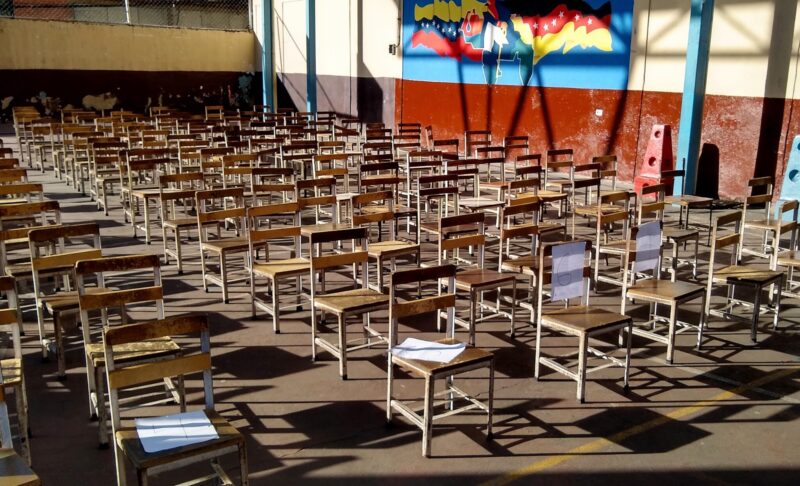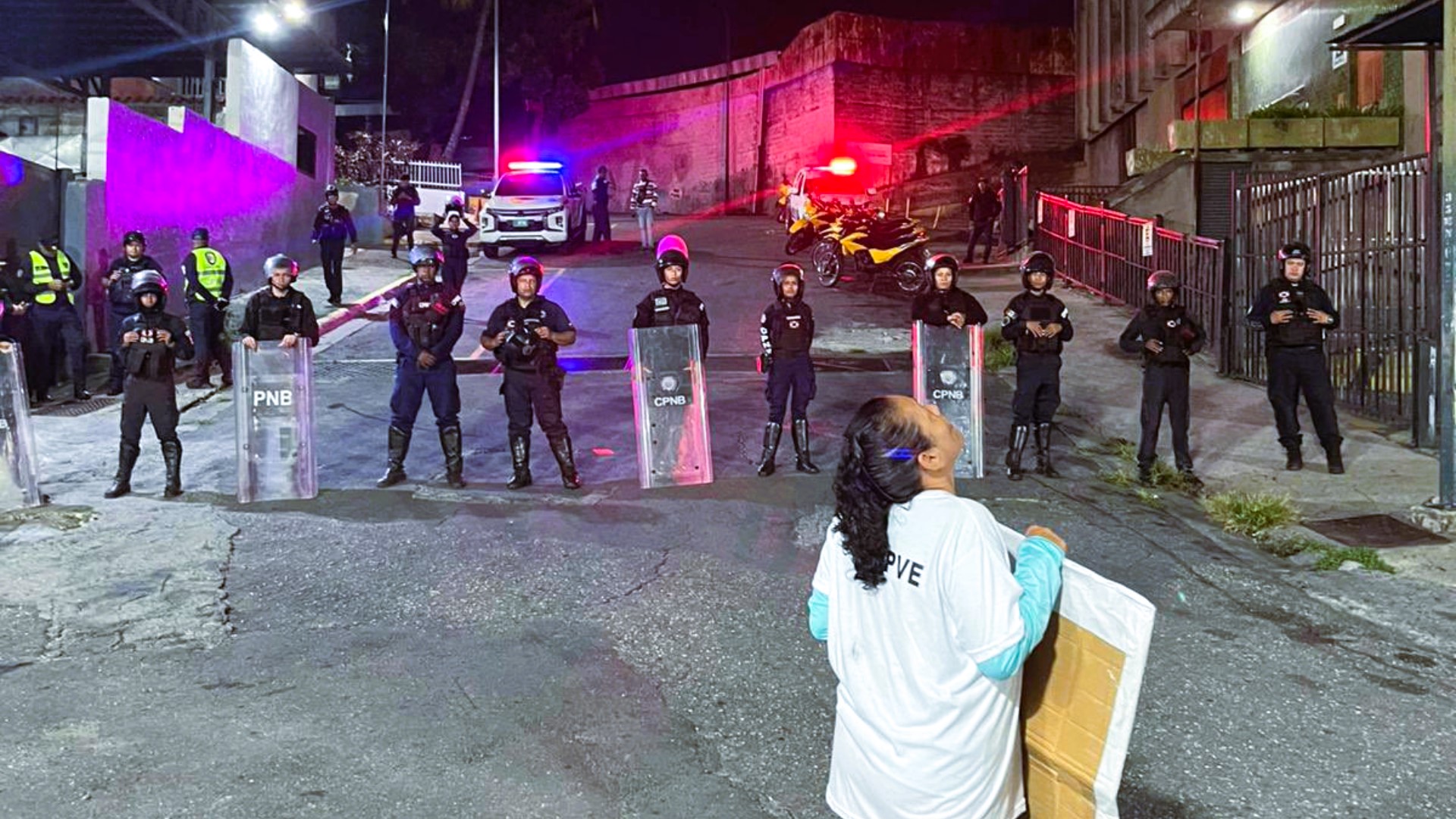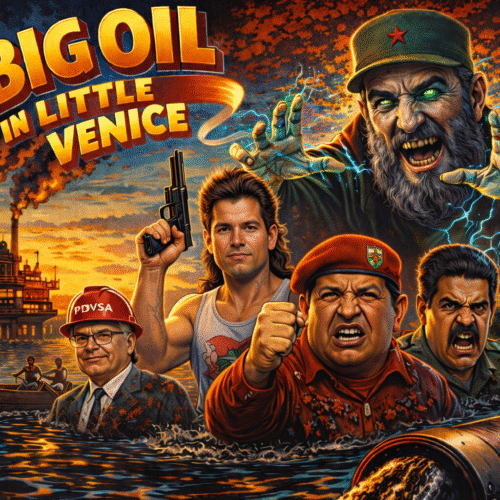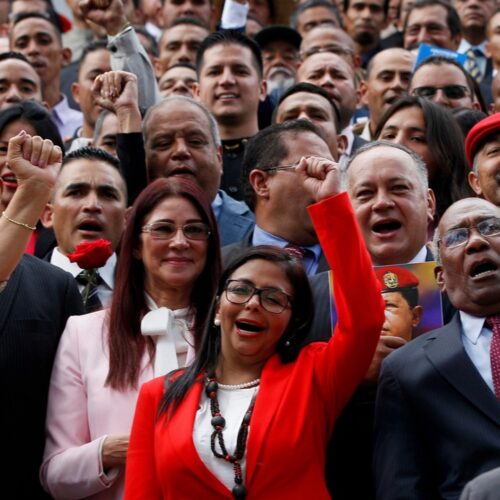The Esequibo Referendum Reveals a Regime Unable to Compete Electorally
Sunday’s low turnout and messy numbers reveal that Chavismo’s electoral machinery is more rusty than expected. Will the regime replace Maduro, and seek legitimacy, or bet for a Nicaraguazo in 2024?

On Sunday night, after extending the closure time of the polling centers for two more hours, Venezuela’s National Electoral Council (CNE) announced the results of the referendum on Venezuela’s claim over the Esequibo territory controlled by Guyana: “turnout was historic”, the CNE’s president Elvis Amoroso said, as he announced that 10.554.320 votes had been cast. The language was opaque: did “votes” referred to each vote for each one of the five questions included in the referendum? VTV, the state channel, seemed to support this idea: it mentioned 10 million “affirmative votes”, which would signify around 2.1 million voters – a smaller turnout than the opposition’s primaries. Dictator math.
The next morning, Amoroso decided to clarify: the number referred to voters. But, out of the blue, the number had now gotten smaller: 10.431.907 voters. Doubts arose as soon as the results were first announced. Not only were there no opposition polling center witnesses or independent monitoring, but all non-governmental reports showed empty polling stations throughout the country. The streets were empty. Some nightclubs and bodegas were even selling alcohol, despite Venezuela’s “dry law” for electoral weekends. It seems –like in 2017, 2018 and 2020– that Venezuela has undergone another sham election.
“Chavismo seemed to be measuring its [mobilization] capacity”, says Juan Manuel Trak, a sociologist with a PhD in contemporary political processes, “It’s a way to look seriously into it ahead of the 2024 [presidential] elections.” And the event’s results, it seems, were dismal. According to Trak, the government will now seek to either restructure its forms of mobilization or even contemplate changing their presidential candidate. “Or, they could take a decision that leads towards the closure of the few pluralistic political participation space that persists in the country and that refuses to die”, he says, “but that space depends on elections that allow the participation of parties and candidates that aren’t complacent [with the regime].”
“There’s an increasing disconnection between the Chavista grassroots and the government and its political system”, Trak says. For Stefania Vitale, a political scientist specialized in authoritarian institutions and opposition political parties, the low turnout was also affected by the fact that it’s a “non-transcendental” topic for most Venezuelans, who are focused on facing the impact of the humanitarian and economic crisis. “There’s also ignorance”, she says, as most Venezuelans don’t know much about the dispute.
The decline of Chavismo’s electoral machinery
“Chavismo has been losing all mobilization capacity for years, since the 2015 parliamentary election and the 2021 regional elections”, says Félix Seijas, head of local pollster Delphos. “There is a strong disconnection with their soft faction, which is demobilized.” According to polls by Delphos, disappointed Chavistas account for half of the people who still identify as Chavista in Venezuela (around 20% of the total electorate).
“This is an electoral problem”, Seijas says. “Even if they manage to mobilize their bases in the 2024 presidential elections, it’s not clear how many would actually vote for PSUV and not for an opposition candidate.” According to Seijas, many of the people Acción Democrática mobilized in December 1998 actually ended up voting for Hugo Chávez.
“There’s a sort of rebellion”, Vitale says. “This is a very unpopular government and people are manifesting that they are fed up.” For Vitale, the high turnout in the opposition primaries is also a symptom of this process. “It breaks the myth of [Chavista] invincibility”, she says, “there’s a profound dissatisfaction with the system in general.”
Nevertheless, Vitale believes the opposition should go beyond this and work towards minimal electoral conditions: “monitoring, building an infrastructure of polling center witnesses, observation”, she says. Thus, Vitale believes that the government –by announcing its dubious numbers– is also seeking to sow distrust in the CNE and promote electoral abstention from opposition voters ahead of the 2024 presidential elections.
Yet, she says, Chavismo will use the results to “create a more effective strategy, new forms of coercion and coaction to have people mobilize in favor of PSUV.” For Trak, traditional forms of coercion –like the CLAP food bags– don’t work as well as before because handouts aren’t enough to cover people’s needs, inequality between ruling Chavistas and the bases has become quite noticeable for the latter which perceives it as “unjust” and resources aren’t being distributed effectively.
Madurismo without Maduro or Nicaraguazo?
Trak believes that the results could be followed by one of three scenarios. First, one in which the powerful groups and actors that support Maduro push for a new Chavista candidate who has a higher approval rate (say, Carabobo governor Rafael Lacava) to hold elections that are minimally competitive and avoid a major snapback of U.S. sanctions.
A second scenario implies Maduro rejecting the negotiation process and ending all electoral competitiveness, reenacting a process like the 2020 parliamentary elections, where only parties and candidates who can’t really compete can participate. “This scenario would force Maduro to close the political competitiveness space in the electoral arena even more”, he says, “the system would look much closer to Nicaragua’s.”
In the third scenario, Maduro creates an “external confrontation” climate following the referendum. In a move similar to that of Argentina dictator Leopoldo Galtieri regarding the Falklands in 1982, Maduro would create a warlike situation with Guyana to “justify keeping power through an external conflict” and suspending the presidential elections in 2024.
For Trak, the second scenario seems the likeliest one now. Yet, Vitale believes that many factions within Chavismo are trying to avoid it. “This doesn’t mean that from now they are extempt of repression, because this is an authoritarian regime”, she says, “but they will deploy processes to solve their internal dilemmas and from then on calculate and negotiate.” For Vitale, those in Chavismo that want to avoid a Nicaraguazo are seeking to have elections where Chavismo can regain legitimacy and economic stability. But, she says, to win such an election, public funding will be necessary: and there won’t be enough if the stick-and-carrot sanctions relief isn’t sustained.
Image: Daniel Hernández/El Estímulo
Caracas Chronicles is 100% reader-supported.
We’ve been able to hang on for 22 years in one of the craziest media landscapes in the world. We’ve seen different media outlets in Venezuela (and abroad) closing shop, something we’re looking to avoid at all costs. Your collaboration goes a long way in helping us weather the storm.
Donate




